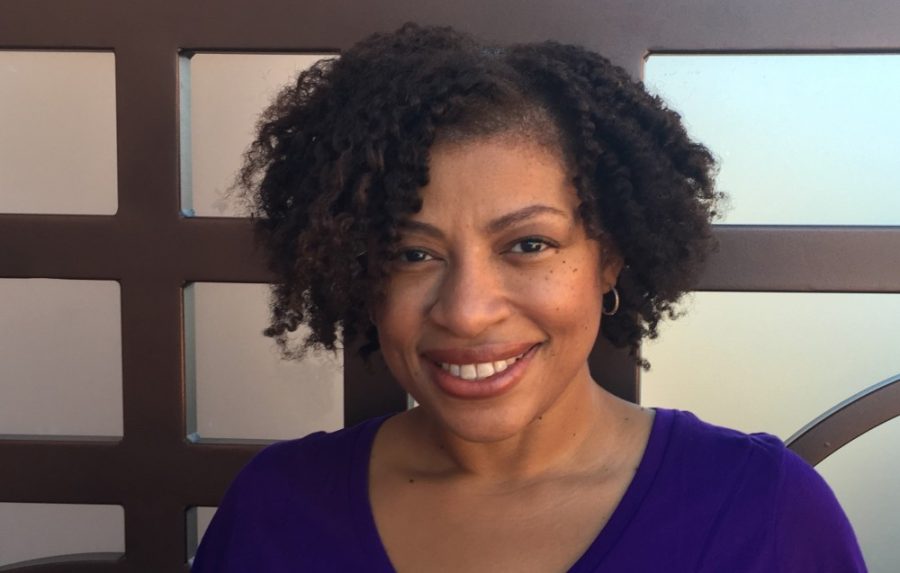The Tucson Festival of Books is an event that brings together book lovers from near and far. The festival returns to the UA campus for its ninth year, bringing an array of genres from hundreds of different authors.
Tyina Steptoe, an assistant professor in the department of History, is an author attending the festival. Steptoe is one of four panelists for the event “A Conversation on Segregated Spaces.” According to the event details on the festival website, the panel will explore how language, law and culture throughout the United States constructs racially segregated spaces.
Steptoe said her newest book, “Houston Bound: Culture and Color in a Jim Crow City,” looks at how migration affected ideas about race in Houston, Texas, through the lens of culture.
Steptoe is especially interested in observing the migration of French-speaking people. They were called Creoles from Louisiana, Mexicans, Mexican Americans from other parts of Texas and African Americans and how, when they moved to Houston, they affected ideas about hierarchy and race during the period of Jim Crow between the 1920s and the 1960s.
RELATED: UA Special Collections Department preserves historic border materials
Steptoe’s research is based on interdisciplinary methods.
“I use newspapers a lot to try and figure out what people were thinking in a particular period,” Steptoe said.
She’s also conducted numerous interviews for hands-on research.
“At one point, I interviewed an 89-year-old woman who could recall what it was like to be in Houston in the ‘20s and ‘30s,” Steptoe said.
Steptoe also examined how music changes during these time periods. She uses zydeco music to look at how Creoles fit into Houston and how that affected culture there. Steptoe explained that zydeco music is a form of music created when the Creoles moved to Houston. The genre is a combination of the blues and the music indigenous to the Creoles.
Steptoe is currently working on a project that explores how rhythm and blues performers Willie Mae “Big Mama” Thornton and Little Richard challenged gender norms in the 1950s.
Jennifer Roth-Gordon, associate professor in the School of Anthropology, is another “A Conversation on Segregated Spaces” panelist.
RELATED: Center for English as a Second Language celebrates diverse UA culture
Gordon said her take is a little different than what may be shared by the other panelists since she’s the only panelist speaking about context outside of America.
“I am really interested in looking at Brazil as a country where it did not have the same history of segregation and legal discrimination,” Gordon said. “But somehow the ideas about racial superiority of whiteness and the inferiority of people of color, especially anything related to African descent and blackness, have still managed to produce a racially unequal society.”
Gordon explained she’s especially interested in looking at how these ideas flourish in a context where there isn’t the same history that results in a similar racial hierarchy as found in the United States.
Gordon’s book, “Race and the Brazilian Body: Blackness, Whiteness, and Everyday Language in Rio de Janeiro,” explains how people are making sense of racial ideas and using race to structure everyday interactions.
Gordon said there’s more to signs of race than looking at phenotype, facial features or hair texture; rather, there is exploration of the linguistic and cultural aspects of the individual by looking at how people sound, how they dress and the activities they engage in.
“You can watch people using these ideas of race to navigate their everyday world, but at the same time they are not necessarily explicitly thinking about it or talking about it in that way,” Gordon said.
Gordon’s newest research project is a continuation of a study of Brazilian racial and social inequality. “Bodies of Privilege: Cultivating Wealth and Whiteness in Rio de Janeiro,” continues to ask how race and racial ideas structure people’s understanding of their society.
“The idea is understanding how they think about race and socioeconomic class,” she said.
She has studied people from marginalized positions in shanty towns, and the next study focuses on those in the middle class and how they react to and navigate inequality in their society in a sharply divided city.
The event, “A Conversation on Segregated Spaces,” will be held at the social and behavioral sciences tent on Saturday, March 11, at 10 a.m.
Follow Kirshana Guy on Twitter.









